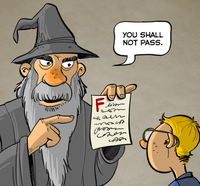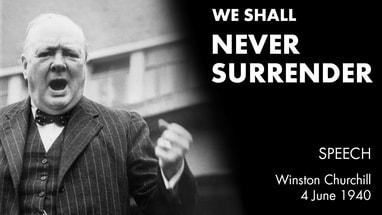Cours de grammaire et langue anglaise
|
D | Shall
Shall s’emploie beaucoup moins que will comme auxiliaire du futur. En général, il s’emploie essentiellement pour montrer que la volonté du sujet est limitée ou inexistante: ce n’est pas lui qui décide d’accomplir l’action. Il s’oppose donc nettement à will qui, comme nous l’avons vu dans la leçon précédente, a tendance à évoquer une idée de volonté ou de bon vouloir.
Sujet + shall + verbe à l’infinitif + Objet(s).
On distingue 3 principaux emplois de SHALL :
1. A la forme interrogative, shall I? Shall we? S’emploient pour demander un avis sur ce qu’il convient de faire, ou pour proposer ses services. (Pensez-vous que je doive...? Voulez-vous que je...?), surtout en anglais britannique. Cette forme est la plus courante de shall.
○ “The students Shall I help you? - Voulez-vous que je vous aide?
○ “The students Shall I make the tea? - Voulez-vous que je fasse le thé?
○ “The students Shall we go to the cinema? - Si nous allions au cinéma?
On peut ajouter shall I? (shall we?) après une tournure impérative:
○ “The students Let’s go, shall we? - Et si on y allait, hein?
○ “The students Let’s forget about that, shall we? - Allez, on oublie tout ça!
Il est très courant de dire « shall we ? » sans le verbe « go » pour dire « on y va ? ».
○ “The students Shall I help you? - Voulez-vous que je vous aide?
○ “The students Shall I make the tea? - Voulez-vous que je fasse le thé?
○ “The students Shall we go to the cinema? - Si nous allions au cinéma?
On peut ajouter shall I? (shall we?) après une tournure impérative:
○ “The students Let’s go, shall we? - Et si on y allait, hein?
○ “The students Let’s forget about that, shall we? - Allez, on oublie tout ça!
Il est très courant de dire « shall we ? » sans le verbe « go » pour dire « on y va ? ».
2. A la forme affirmative shall s’emploie rarement et exceptionnellement pour des promesses formelles, les commandements (comme dans la bible), les contraintes ou les menaces prononcées par le locuteur (“you shall go” = I want you to go). Dans ce cas, l’effet de sens est très solennel, très formel.
|
3. Shall s’emploie dans le style juridique (les lois) ou des règlements officiels:
○ “The students shall wear uniforms.”
○ “ Le étudiants / élèves sont tenus de porter l'uniforme.
○ “The students shall wear uniforms.”
○ “ Le étudiants / élèves sont tenus de porter l'uniforme.
“A well-regulated Militia, being necessary to the security of a free State, the right of the people to keep and bear Arms, shall not be infringed.”
- II Amendment to The United States Constitution
Regardez cette scène du film sur Winston Churchill. Vous aurez un exemple de contexte dans lequel shall est employé par le locuteur (ici Winston Churchill) pour faire des promesses solennelles .
Shall est en effet très souvent utilisé dans des slogans :
○ "We shall overcome" (une protest song chantée lors des marches du Mouvement des droits civiques aux USA).
○ Ou comme ici avec Winson Churchill: "We shall never surrender".
Shall est en effet très souvent utilisé dans des slogans :
○ "We shall overcome" (une protest song chantée lors des marches du Mouvement des droits civiques aux USA).
○ Ou comme ici avec Winson Churchill: "We shall never surrender".
|
"That is the will of Parliament and the nation"
-> c'est la volonté du parlement et de la nation. |
Extrait du discours de Churchill que vous pouvez entendre dans la vidéo. Il y a aussi un "will" de la volonté (indiqué en rouge).
I have, myself, full confidence that if all do their duty, if nothing is neglected, and if the best arrangements are made, as they are being made, we shall prove ourselves once again able to defend our Island home, to ride out the storm of war, and to outlive the menace of tyranny, if necessary for years, if necessary alone. At any rate, that is what we are going to try to do. That is the resolve of His Majesty’s Government-every man of them. That is the will of Parliament and the nation. The British Empire and the French Republic, linked together in their cause and in their need, will defend to the death their native soil, aiding each other like good comrades to the utmost of their strength.
|
Even though large tracts of Europe and many old and famous States have fallen or may fall into the grip of the Gestapo and all the odious apparatus of Nazi rule, we shall not flag or fail. We shall go on to the end, we shall fight in France, we shall fight on the seas and oceans, we shall fight with growing confidence and growing strength in the air, we shall defend our Island, whatever the cost may be, we shall fight on the beaches, we shall fight on the landing grounds, we shall fight in the fields and in the streets, we shall fight in the hills; we shall never surrender, and even if, which I do not for a moment believe, this Island or a large part of it were subjugated and starving, then our Empire beyond the seas, armed and guarded by the British Fleet, would carry on the struggle, until, in God’s good time, the New World, with all its power and might, steps forth to the rescue and the liberation of the old.
E | Le présent progressif - La forme en be + verbe en -ing.
Le présent progressif (BE + Verbe en -ing) exprime souvent un futur. La date est normalement précisée. Cette construction est très courante dans la langue parlée. Elle s’emploie notamment avec des verbes comme: go, come, leave, start...
○ I’m going to a concert tonight. - Je vais à un concert ce soir.
○ Are you working tomorrow morning? - Tu travailles demain matin?
○ They’re leaving tomorrow. - Ils partent demain.
Ces exemples sont traduits par des présents en français et montrent qu’il s’agit d’actions projetées, attendues, qui doivent se produire sauf imprévu.
○ Are you working tomorrow morning? - Tu travailles demain matin?
○ They’re leaving tomorrow. - Ils partent demain.
Ces exemples sont traduits par des présents en français et montrent qu’il s’agit d’actions projetées, attendues, qui doivent se produire sauf imprévu.
A la forme négative et lorsque « not » est accentué, il s’ajoute une nuance de volonté très ferme de la part du locuteur. C’est un peu comme « will » à la forme simple
I’m NOT seeing anybody today |
You’re NOT staying with him; you’re coming with us. |
Je ne verrai pas (ou je ne veux pas voir) quelqu’un aujourd’hui. |
Tu ne restes pas avec eux, tu viens avec nous. (C’est un ordre). |
She is not coming with us.
Cette phrase peut avoir 2 sens:
1 - J’informe qu’elle ne viendra pas, sauf imprévu.
2 - Ou, je lui interdis de venir. Dans ce cas, le ton est très sec et not est accentué à l’oral.
Cette phrase peut avoir 2 sens:
1 - J’informe qu’elle ne viendra pas, sauf imprévu.
2 - Ou, je lui interdis de venir. Dans ce cas, le ton est très sec et not est accentué à l’oral.
Télécharger ou imprimer la leçon



